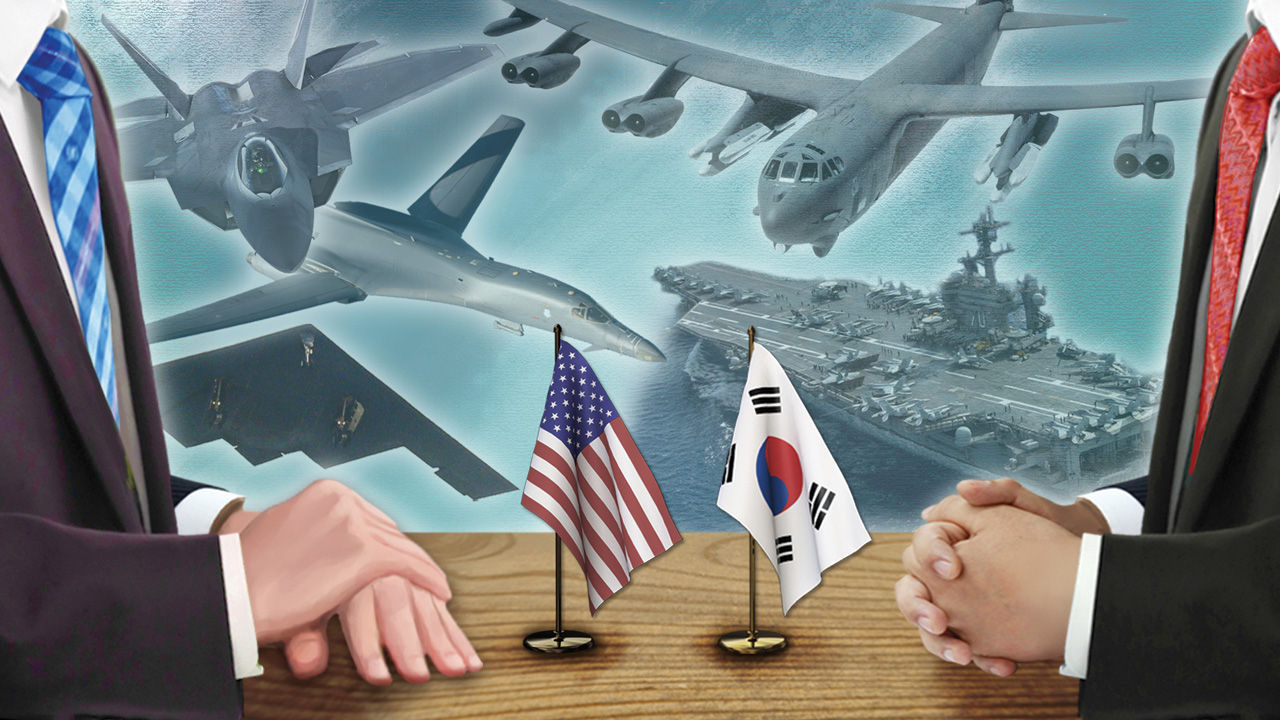 |
(Yonhap) |
WASHINGTON -- The United States "routinely" reviews its global force posture, a Pentagon official said Saturday, following a report that the Defense Department has offered the White House options to reduce American troop levels in South Korea.
Citing unnamed US officials, the Wall Street Journal reported last week that the options were presented in March after a broader review of options for withdrawing troops from around the world, including in the Middle East, Africa, Europe and Asia.
"We won't comment on press speculation," the official told Yonhap News Agency.
"We routinely review global force posture, our forces remain postured to respond to any threat, and the president has been clear and consistent regarding cost sharing worldwide," the official added.
Concerns over a possible US troop drawdown have continued amid an impasse in the negotiations between South Korea and the US over the sharing of the cost for the upkeep of the 28,500-strong US Forces Korea (USFK).
Worries further deepened as the US has recently decided to reduce the number of its troops in Germany to 25,000 from the current 34,500.
Former US National Security Adviser John Bolton also claimed in his recent memoir that President Donald Trump threatened to pull troops from Korea if Seoul did not pay $5 billion under a defense cost-sharing deal.
Meanwhile, a senior US administration official reiterated that South Korea and other American allies should "contribute more," while noting the defense cost negotiations between Seoul and Washington are still ongoing.
"The president has been clear in the expectation that our allies around the world, including South Korea, can and should contribute more," the official said.
"We will continue to discuss with our Korean partners a mutually beneficial and equitable agreement that will strengthen the alliance and our combined defense far into the future," the official added.
In the negotiations, South Korea and the US have drawn clear battle lines, casting their latest proposals as the final ones.
Seoul officials indicated a 13 percent increase from last year's SMA, around $870 million, as the "best offer" Korea could make, while the US has asked the ally to pay $1.3 billion a year -- an increase of about 50 percent from the 2019 SMA.
The drawn-out negotiations that started in September last year have fanned worries that they could cause needless tension in the alliance when Seoul and Washington should strengthen cooperation in their efforts to denuclearize North Korea. (Yonhap)




![[Herald Interview] 'Trump will use tariffs as first line of defense for American manufacturing'](http://res.heraldm.com/phpwas/restmb_idxmake.php?idx=644&simg=/content/image/2024/11/26/20241126050017_0.jpg)

![[Health and care] Getting cancer young: Why cancer isn’t just an older person’s battle](http://res.heraldm.com/phpwas/restmb_idxmake.php?idx=644&simg=/content/image/2024/11/26/20241126050043_0.jpg)

